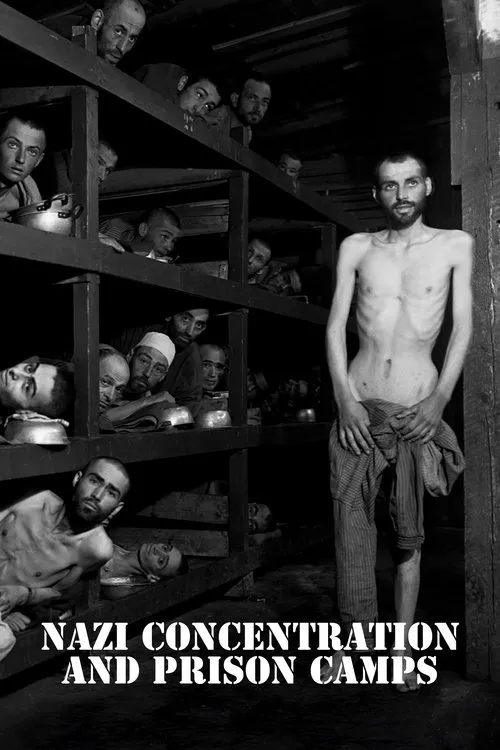Nazi Concentration Camps

Plot
"Nazi Concentration Camps" is a powerful and harrowing documentary that serves as a poignant reminder of the atrocities committed during World War II. As a significant piece of evidence presented at the Nuremberg war crimes trial, this film provides a disturbing insight into the inner workings of Nazi concentration camps, where millions of innocent lives were lost. The documentary begins by showcasing the testimonies of survivors, who recount their experiences in the camps. Their accounts are heartbreaking and often traumatic, revealing the unimaginable cruelties inflicted upon them by the Nazi regime. The survivors speak of brutal treatment, forced labor, starvation, and the inhumane conditions that reigned in the camps. Their narratives serve as a stark reminder of the devastating impact of the war on individuals and communities. The film shifts its focus to the facilities of the concentration camps, taking the audience on a poignant journey through the camps' stark landscapes and crumbling buildings. These are not mere structures; they are the scenes of unimaginable suffering, where lives were brutally extinguished, and hope was systematically extinguished. The visuals are a testament to the efficiency of the Nazi regime's machinery of death, a grim reflection of the calculated brutality with which human life was devalued. One of the most distressing aspects of "Nazi Concentration Camps" is the documentation of the medical experiments conducted on prisoners. These experiments were a stark manifestation of the Nazi regime's callous disregard for human life, where prisoners were subjected to gruesome procedures for the sake of scientific research. The footage captures the inhumane treatment of inmates who were subjected to experiments, which left them permanently scarred, crippled, or even killed. The film also exposes the Nazi regime's policies of racial purity, which underpinned the concentration camps' systematic extermination of Jews, Romani people, LGBTQ+ individuals, and people with disabilities. The documentary shows the victims' identities stripped away by a system that dehumanized them as subhuman, thereby justifying their extermination. These images serve as a warning about the dangers of unchecked nationalism and the systematic persecution of minority groups. As the documentary progresses, it highlights the role of concentration camps as instruments of terror and repression. The film examines how the German population was indoctrinated with anti-Semitic propaganda, fueling an atmosphere of fear and hatred. The Nazi regime exploited the fears and prejudices of the population to justify the brutal suppression of any perceived opposition to their rule. "Nazi Concentration Camps" concludes with the testimonies of the survivors, their voices bearing witness to the unimaginable horrors they faced in the camps. Their words serve as a testament to the power of the human spirit, which, even in the face of unimaginable cruelty, continues to resist, to suffer, and to bear witness to the atrocities that were committed. The documentary ends on a somber note, with the audience left to grapple with the profound implications of the atrocities that were revealed. The film does not shy away from the uncomfortable truths it presents; rather, it confronts the audience with the grim realities of human depravity and the importance of holding individuals accountable for their crimes. As a work of documentary filmmaking, "Nazi Concentration Camps" stands as a haunting reminder of the importance of recording history, particularly when it pertains to the darkest aspects of human nature. The documentary raises crucial questions about our collective responsibility to confront the dark chapters in our history, ensuring that such atrocities are never repeated. "Nazi Concentration Camps" serves as a warning, a tribute to the victims, and a solemn reminder of the importance of human rights, dignity, and the sanctity of life.
Reviews
Recommendations




